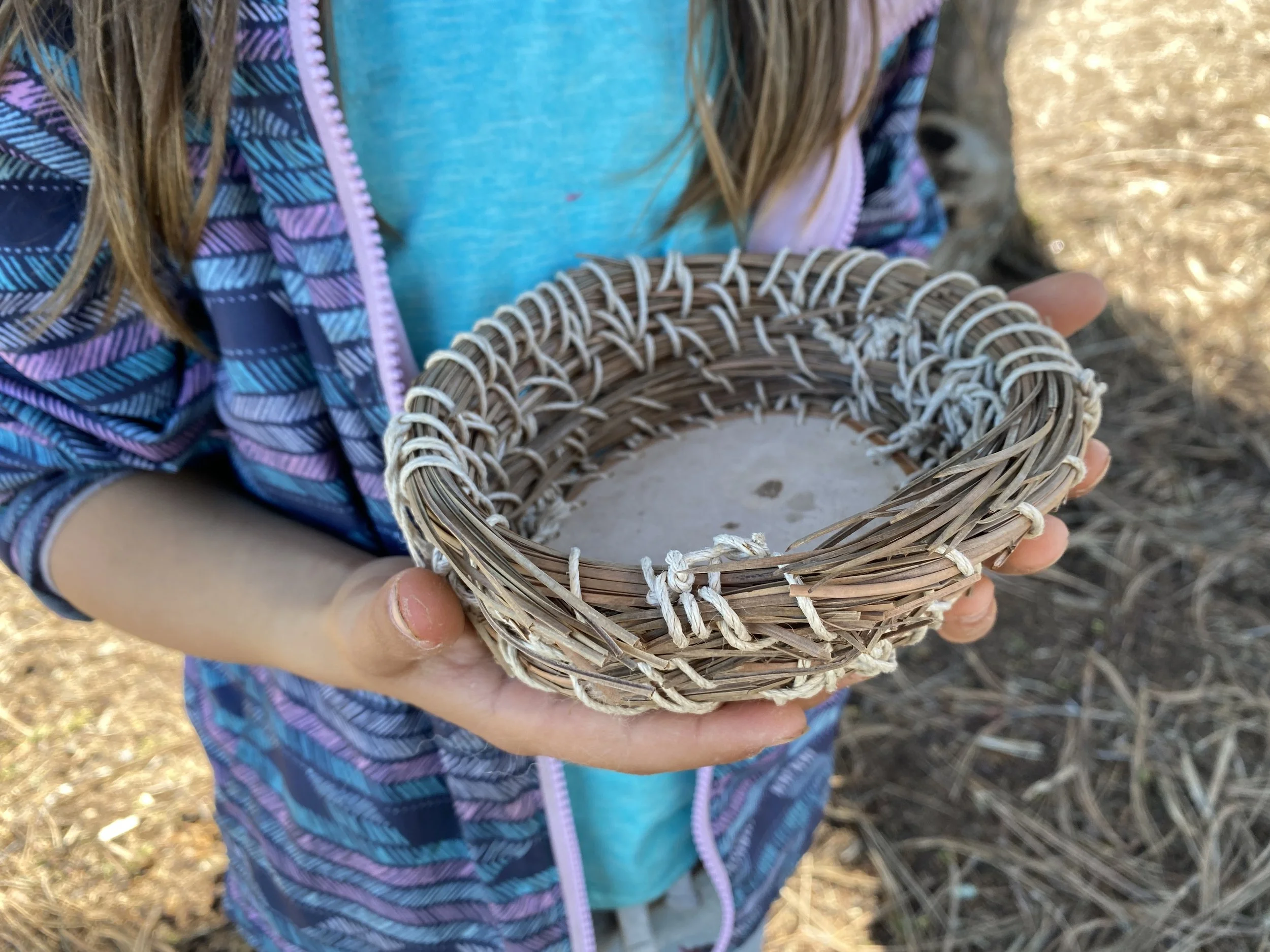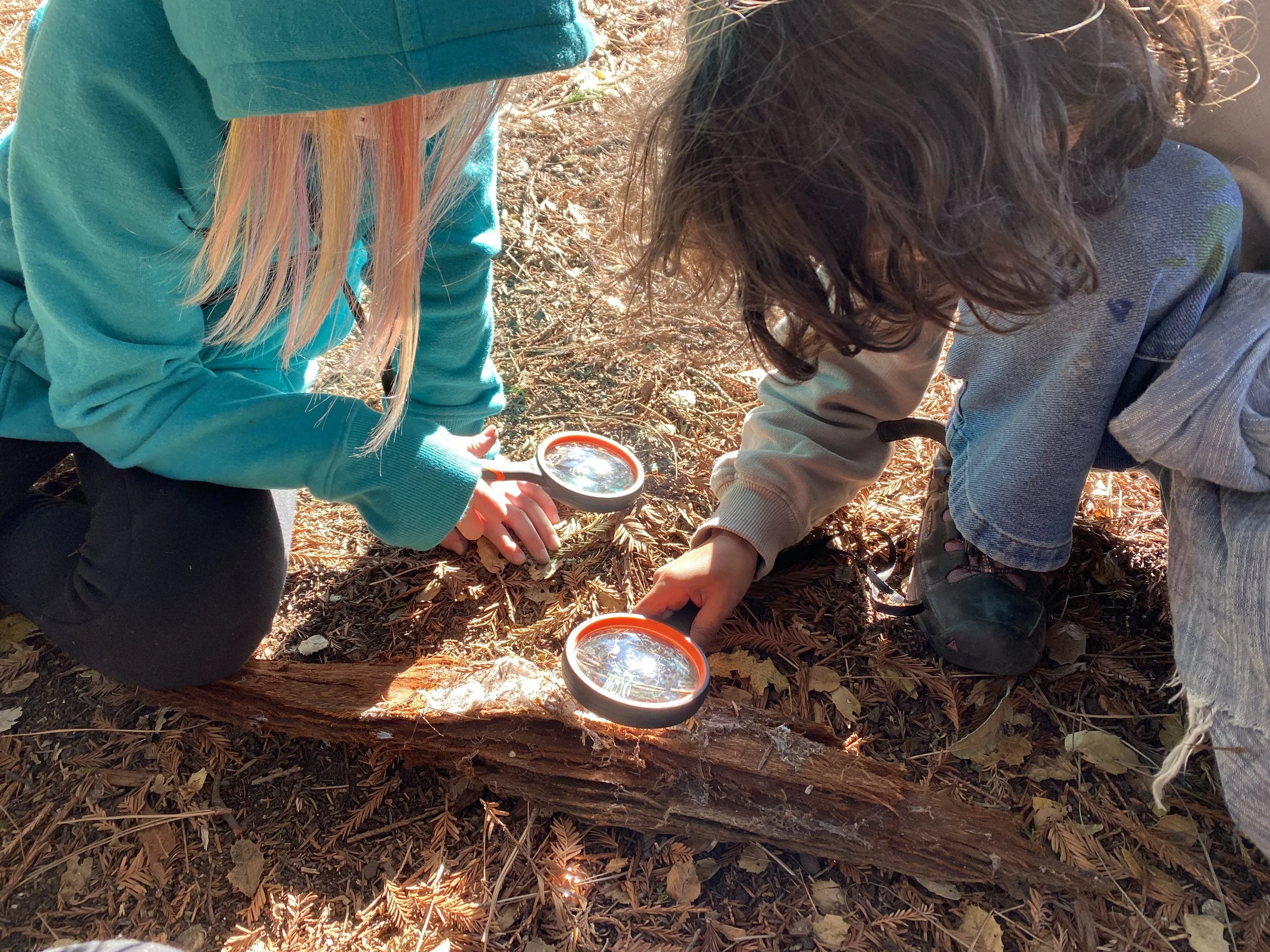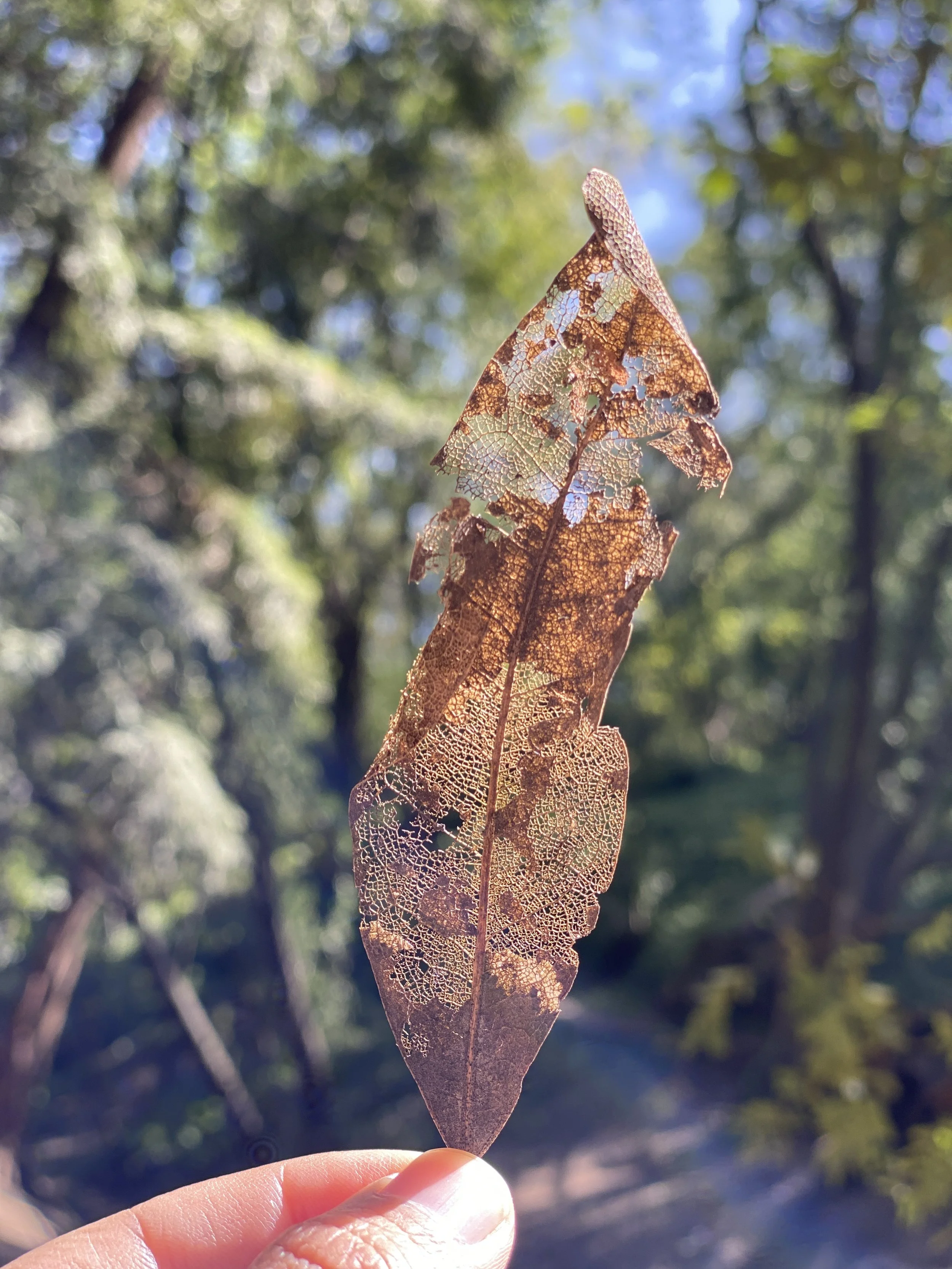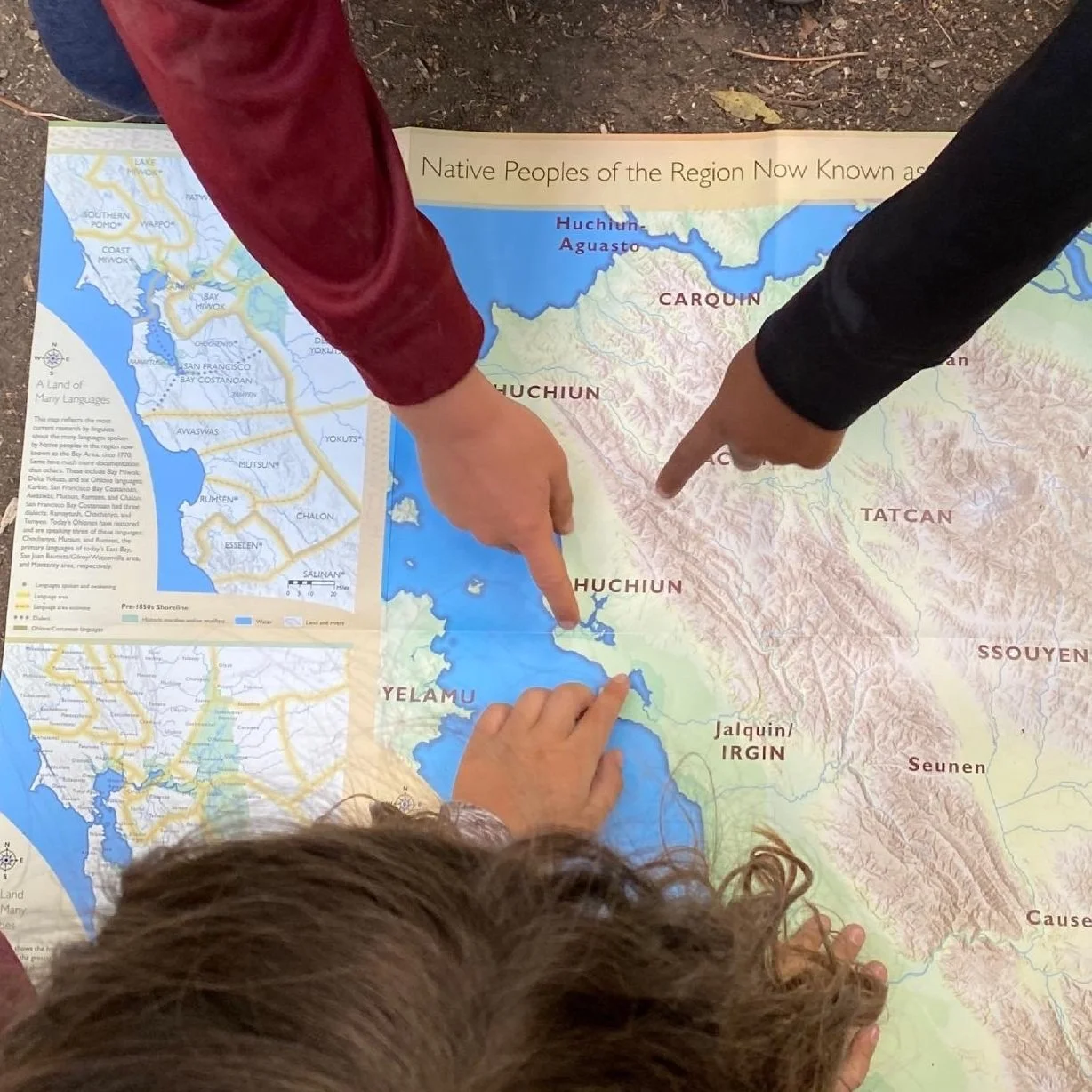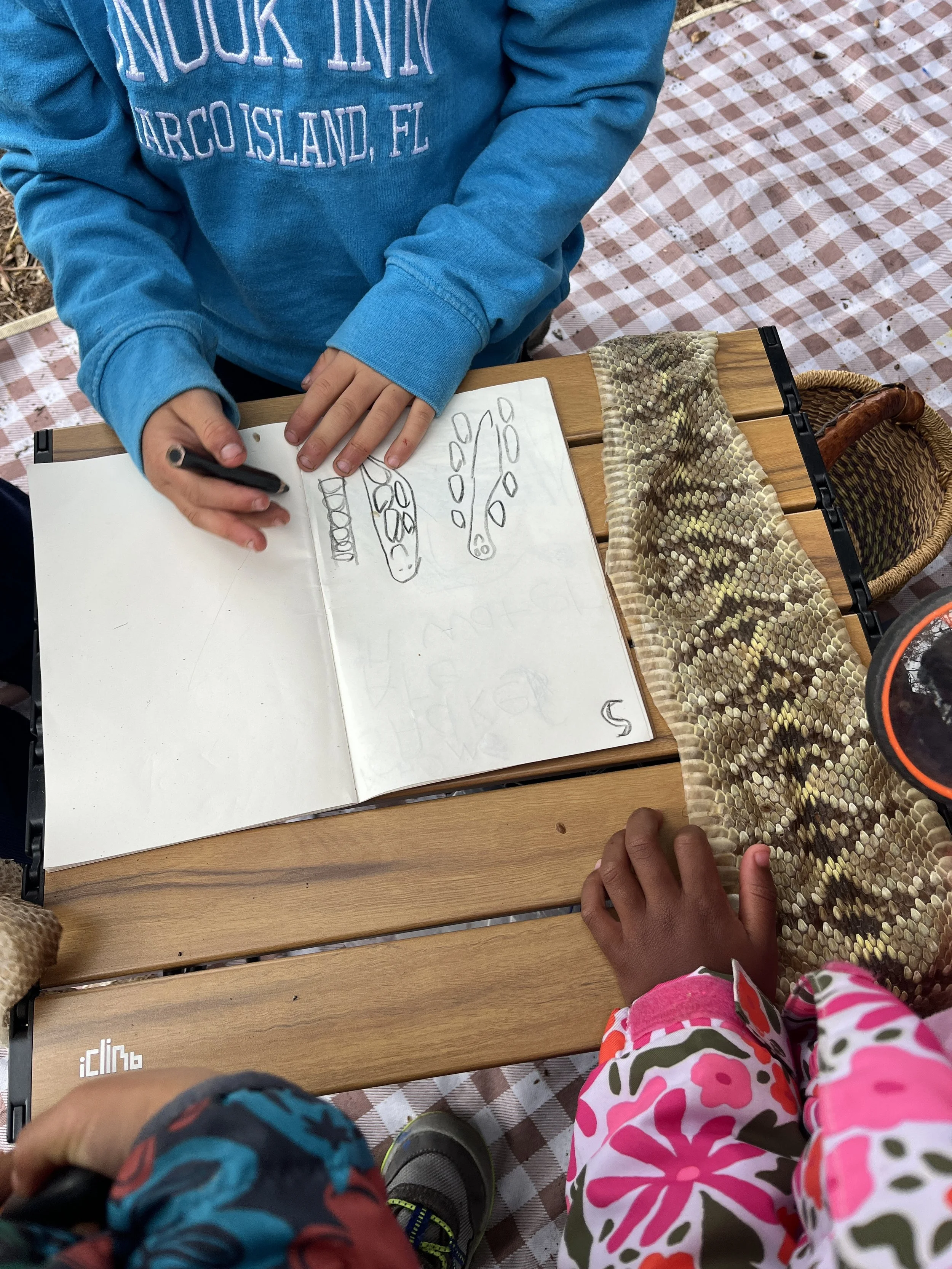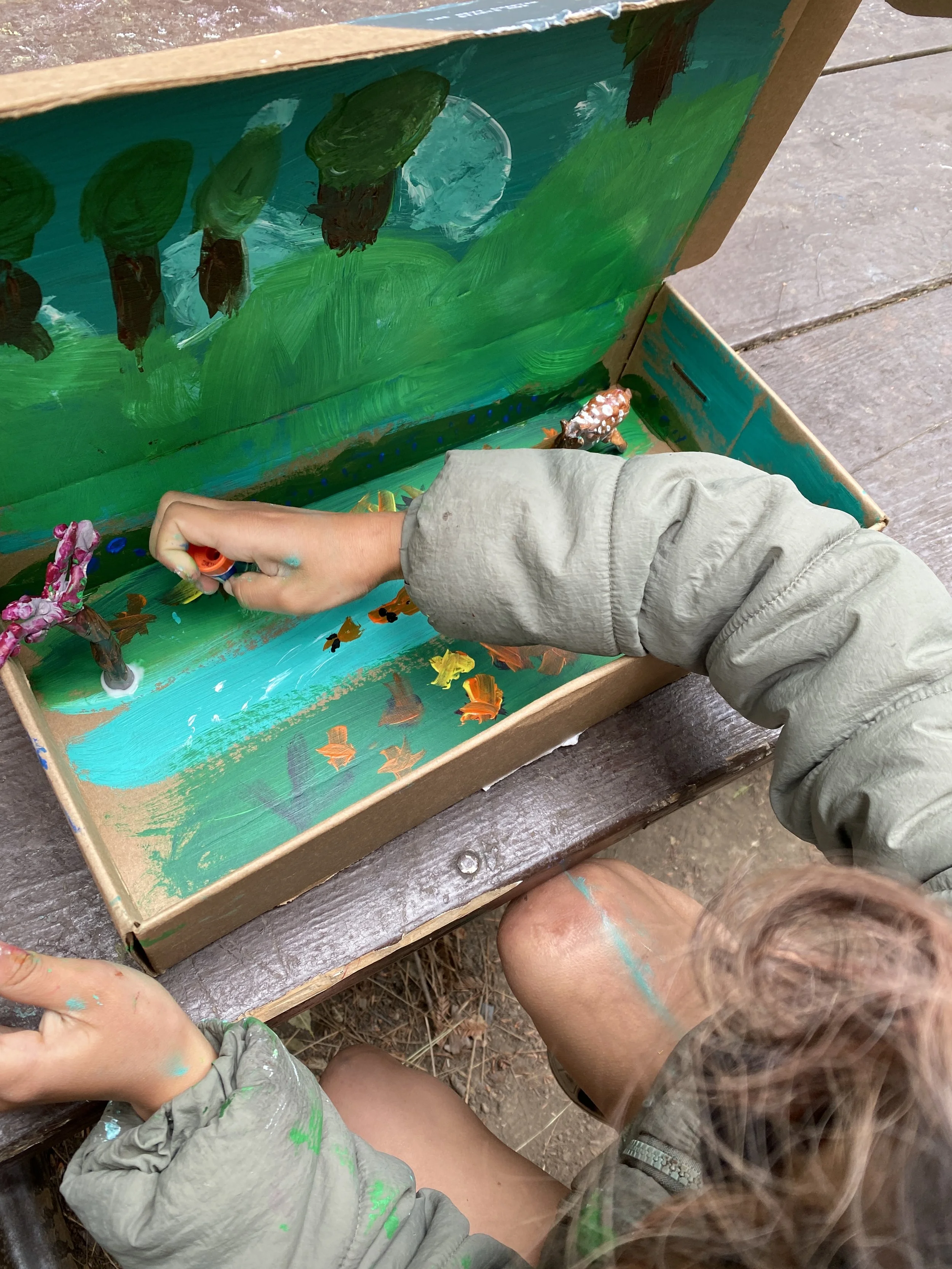Earthkin Wonder Club
Learning through landscapes one Saturday at a time
Saturday gatherings once per month in nature, for 10-sessions over the course of a school-year — rain or shine! We meet 9am-3pm in local parks and natural spaces.
What is Earthkin Wonder Club? & Why should we enroll?
We gather under trees and wide skies, in muddy shoes and curious hearts, to follow the seasons through the school year together. No screens, no homework, unhurried, and “free to be me”. We play, we sing, we wonder, we notice, we climb, we craft, we rest, and we belong — to ourselves, to each other, and to this living earth we share. Following a consistent daily rhythm, similar-enough to a school day, children have the comfort of familiarity and the freedom to explore a seasonal place-based curriculum in collaboration with nature!
When a child feels a sense of belonging in their environment, they begin to feel at home within themselves. This inner ease comes with a quiet confidence that they are safe, seen, and supported, and that becomes a foundation for emotional resilience and lifelong well-being. When children are valued within a compassionate, connected community, they learn to value others and the world around them. These early experiences of kinship ripple outward, shaping how they care, how they relate, and how they lead. The sense of belonging they grow into today becomes the care they offer others tomorrow, and echoes through generations.
Registration now open!
Developmental Benefits of Earthkin Wonder Club
Cognitive Development: Wonder as a Foundation for Learning
Outdoor, child-led exploration stimulates the brain in ways traditional classrooms often cannot. Open-ended play in nature encourages executive functioning, including problem-solving, memory, and focus — all are essential building blocks for academic success and critical thinking. Executive functions are more effectively developed through imaginative play and movement-based activities than through direct instruction alone. Additionally, green spaces have been shown to improve attention span and working memory, especially in young children who struggle with overstimulation from screens and indoor environments. When children are given the time to wonder, ask questions, and interact directly with the natural world, learning becomes not only integrated — it becomes and meaningful.
Social & Emotional Intelligence: Growing with Belonging
Nature-based learning for children enhances self-awareness and emotional resilience, and helps them grow their capacity for working through challenges, all while reducing levels of cortisol, the stress hormone. These calm, connected environments support secure attachment patterns, a key predictor of emotional well-being later in life. As children care for the land and each other, they grow to be stewards of themselves, their communities, and their environment.
In a small, consistent group immersed in nature, children learn to navigate relationships, and resolve conflicts with empathy, cooperation, and emotional regulation, and build trust. With gentle supportive guidance we model respectful disagreement, and learn how to respond with grace when you are wrong or have negatively impacted others. We also model how to respond to doubt in a self-assured and grounded way.
Physical Development: Movement that Matters
Unlike many modern playgrounds or flat indoor spaces, natural settings offer a dynamic range of physical challenges: balancing on logs, climbing uneven terrain, skipping rocks, and moving through varied textures. These experiences strengthen gross motor skills, core stability, and proprioception (body awareness) — all of which are crucial to healthy development.
According to pediatric occupational therapist Angela Hanscom, “Children are often not getting the movement they need to support healthy sensory and motor development. Nature provides this, organically”. The vestibular system (responsible for balance and coordination) also matures through outdoor play, and children who develop strong movement patterns early are more confident, better regulated, and more prepared for classroom learning, and life!
Learning through the seasons…
2025-2026 Schedule
September: Map-making & Wayfinding (Autumn Equinox)
We begin the year by learning how to orient ourselves — on the land, in the seasons, and in our own bodies. Children create maps (real and imaginary), practice gentle wayfinding, and reflect on what it means to belong to a place.
October: Natural Ink-making
As leaves change and the world bursts into color, we make inks from berries, bark, and clay! Children experiment with brushwork, storytelling, and mark-making — expressing themselves with materials from the land. We honor each child’s voice and celebrate the stories that carry through each of us.
November: Lineage & Waterways
We follow the path of local creeks and waterways, learning about their history and the Indigenous peoples who have (and continue) to steward this land. We explore what it means to have a relationship with our own lineages and the lifeways of water.
December: Light and Dark (Winter Solstice)
In the darkest days, we gather around candlelight and gentle movement to honor both quiet rest and Winter magic. We reflect on balance, create lanterns, and celebrate the return of sunnier days together ahead!
January: Community Care & Campfire Cooking
Together we build small fires, prepare, cook, and share food, and consider the interconnected community that brings us together. We reflect on how we care for one another, for animals, and for the land, especially in Winter.
February: Love Your Landscape: A Valentine to the Earth
Children create Valentine cards for places that are special to them, expressing their growing love for place. We explore the beauty in our surroundings and the joy in noticing small wonders. We consider what it means to feel connected to multiple places, and how others may feel similarly towards places we know or places we don’t know yet!
March: Poetry & Plant Medicine (Spring Equinox)
With Spring's arrival, we look closely at the first green growth. Children learn about safe and ethical foraging practices, and medicinal native plants through stories and song, and create simple poetry inspired by nature’s healing ways.
April: Renewal & Reflections
We take time to notice what has changed since autumn — in ourselves and in the land. Children explore cycles of growth and rest, and review our nature journals and projects to reflect what they see and feel.
May: Flowers & Abundance
The world is blooming! We explore pollinators, seed dispersal, and the abundance of spring. Children gather flowers for ephemeral art and consider ways they can carry what they’ve learned to others. Each One Teach One.
June: You Are a Gift to the Earth
We end the year with celebration and gratitude. Children reflect on all they’ve learned and the many ways they’ve grown. We offer simple gifts to the land and recognize each child as a valued member of our community during our last gathering circle before summer break.
Frequently Asked Questions (FAQ)
Who is this club for?
Children age 5-8 years old, with some flexibility. If your child is in TK and not-quite 5 yet, feel free to enroll! Ideal for those who enjoy outdoor play, creativity, and forming deeper relationships with nature and others. Children who are fascinated with the magic and wonder of nature, seek out the splashiest puddles, and love to share their ideas about the world, will be a wonderful fit!
What happens at each gathering?
For 10 sessions over the course of a school-year, we come together in nature once per month on Saturdays from 9am-3pm, rain or shine! (Exact meeting dates available upon request.) We explore the season through play, observation, stories, crafts, and games.
Is this a drop-off program?
Yes, with a consistent group of guides and children. Children register for all 10-sessions. This is not a drop-in program.
What if my child doesn’t like bugs/mud/rainy weather?
That’s okay! We meet each child with respect, flexibility, and humor. Comfort grows with increasing familiarity, then comes the curiosity once the fear is gone. Please email in advance regarding sensory issues or any specific challenges we may support your child with.
How is this different from a nature walk or summer camp?
Earthkin Wonder Club is rooted in rhythm and relationship — returning with the same group and natural spaces over time helps deepen connection and confidence.
What do you do when it rains?
We help families learn how to dress for all weather conditions so that we may all stay comfortable and dry! We also utilize tent canopies and rain shelters where needed.
What if BFS cancels due to weather?
We will always reschedule our meeting date if unsafe weather is forecasted. Safety is always our top priority.
I don’t have a child to enroll but I’d love to support! How can I do that?
Just email us! :)
Fees & Discounts
Costs
Each Session is $160
10 Sessions total is $1,600
Costs include
All tools, materials, and supplies
Snacks (organic, no sugar added)
Earthkin Wonder Club t-shirt and sweatshirt
Discounts Available
Sibling Discount — 10% off the second child enrolled
Additional discounted rates and scholarships available for single parent families and for households earning less than $90k/yr — Please email for info.
Payment plans are available in 1, 2, 3, or 4 installments with a $400 deposit paid upon registration confirmation. Payments due in full: December 2025.
refunds and cancellation policies
Cancellations on or before September 1: A refund will be processed in the amount of your payment minus a $175 administrative fee.
Cancellations on or before October 1: A refund will be processed in the amount of 50% of the total 10-series cost, unless we are able to fill your spot with someone from the waitlist. If we are able to fill your spot, a refund will be processed in the full amount of your payment minus a fee to cover the September and October class sessions.
Cancellations after October 1: No refunds given. Credit may be offered.
Credit card processing fees are not refundable.
““The impulse to play is a biological drive. It’s nature’s way of ensuring that children develop into strong, competent, and emotionally resilient adults.””
“Knowing that you love the earth changes you, activates you to defend and protect and celebrate. But when you feel that the earth loves you in return... that’s when you belong.”
““Children will never love what they don’t know — and they won’t protect what they don’t love.””
““It’s not just about getting kids into nature. It’s about cultivating relationship. Kinship. A felt sense of belonging.””
““Children need nature in their lives to be whole.””

